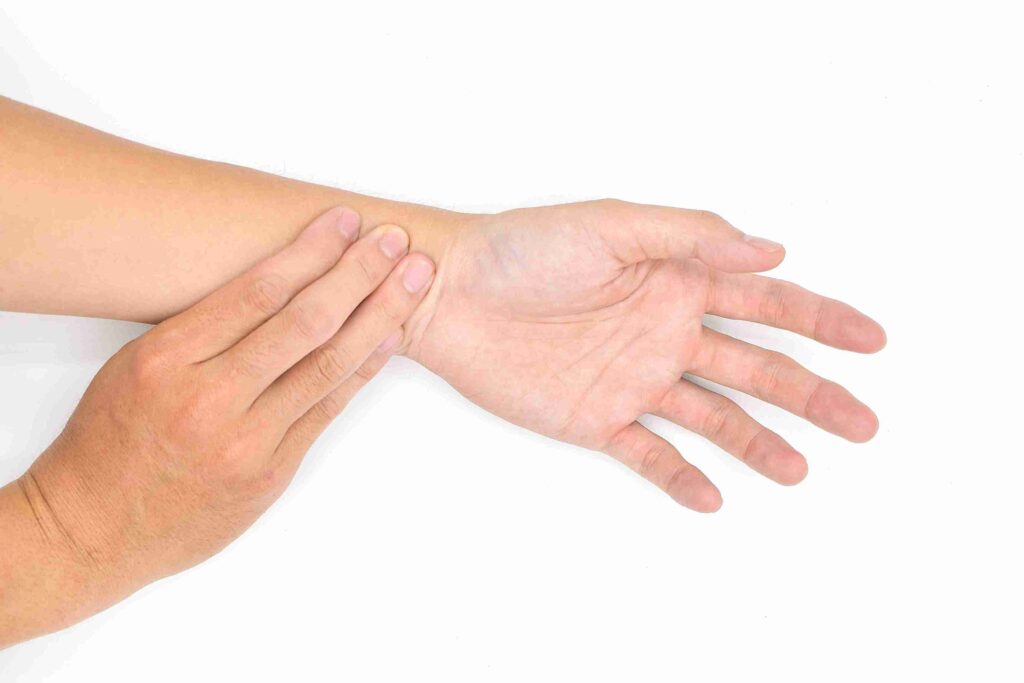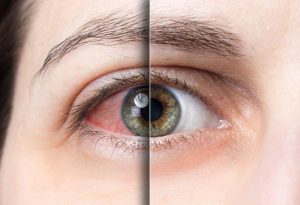It is usual for all of us to experience fast heart rate during exercise, stress, or a steamy workout. But what if you’re sitting on a sofa or lying on your bed, and your heart starts to beat faster? A panic mode switches on as you seek a quick solution or help from somewhere.
A faster pulse rate during resting position can be a red flag of underlying issues, such as dehydration or cardiovascular problems. In some cases, an increased heart rate along with chest pain can also be a symptom of a heart attack.
So now the question arises: Should you go to the hospital for rapid heart rate or wait for the symptoms to subside? Is it safe to wait for your pulse to return to normal?
Read further to know at what heart rate you should contact the emergency care facility. You’ll also know whether you can approach urgent care centers for heart palpitations or not.
What Heart Rate Is Normal?
As reported in MayoClinic, a normal heart rhythm ranges from 60 to 100 beats per minute in adults.
However, multiple factors influence heart rates, such as age, medications, overall fitness, and underlying medical conditions (high cholesterol, diabetes, or heart disease).
Most importantly, your heart rate depends on what action you currently perform. For instance, when you’re at rest, your heart rate can be less than 80 bpm and it’s normal. But what if your heart increases in resting position? Read further to know when you should head over to the hospital.
How Do You Check Your Pulse Quickly?

- Place the middle three fingers on the upper groove of the wrist of another hand to check your pulse.
Next, count each pulse for 30 seconds and multiply by 2 to calculate the heart rate in one minute.
At What Heart Rate Should You Go To The Hospital?
Suppose you’re in a resting position and your heart rate consistently exceeds 100 beats per minute (bpm). In that case, you should seek medical assistance immediately or ask a family member to take you to the hospital.
A heart rate of more than 120 bpm can be fatal if you have any underlying medical condition such as atrial fibrillation, cardiovascular disease, diabetes or any other disease. Therefore, call the emergency care facility immediately.
Moreover, if you are non-athletic and experience a consistent pulse rate below 60 bpm, it is crucial to seek prompt medical attention.
Some Common Causes Of High Pulse Rate That You Can’t Ignore
Not all cases of fast heart rate are dangerous as many everyday situations aren’t related to heart problems. Normally, your heart rate increases to more than 100 bpm after a strenuous activity or a heavy workout. This is regular tachycardia and your heartbeat returns to normal after some time. Some everyday fast pulse rate situations that aren’t serious are:
- Heavy exercise
- Stress, fear, anxiety
- Too much alcohol or caffeine
- Pregnancy
However, other causes of tachycardia can’t be ignored at any moment and should be identified or treated by a medical expert.
- Underlying conditions such as asthma, high blood pressure, diabetes, stroke, anemia, etc.
- Serious heart conditions like atrial fibrillation, myocarditis, congenital heart disease, heart attack
- Endocrine disorders like hyperthyroidism, hypothyroidism, pheochromocytoma etc.
- Certain medicines (amphetamines, cocaine, anti-asthmatic drugs, decongestants)
When Should You Go To The ER for Tachycardia?
If you experience tachycardia and the following high-alert symptoms, seeking medical attention at the nearest hospital or emergency care facility is crucial.
- You have difficulty breathing or pain in the chest.
- If you have any existing medical condition such as diabetes or cardiovascular disease.
- You feel lightheaded, dizzy, nauseous, or faint.
- If your heart is beating irregularly or you feel heaviness in your chest.
If you have any of these above-mentioned signs or perhaps you notice your family member or any colleague experiencing these symptoms, make sure that you take them to the ER immediately or call 911 as these symptoms along with tachycardia can be fatal.
Seek Urgent Care For Heart Palpitations
If you have heart palpitations accompanied by severe shortness of breath or chest pain, you can contact a nearby urgent care clinic.
However, the course of treatment depends upon several factors such as age, current symptoms, and pre-existing medical conditions. On the other hand, depending on your symptoms and associated comorbid conditions, you may be referred to a specialized clinic or a relevant specialist for a more targeted and comprehensive evaluation.
This personalized approach ensures appropriate and effective care for each patient. Your healthcare professional will determine the best course of action depending upon your medical condition.
FAQs
Can a common cold increase your heart rate?
Yes, a common cold can increase your heart rate. The immune system becomes activated when the body fights off an infection, such as the viruses that cause the common cold. This immune response can lead to various physiological changes in your body, including increased heart rate.
Another reason for a racing heart during the common cold can be a high fever. The body increases its heart rate to distribute heat more efficiently and support the immune response.
Note that a mild increase in heart rate is a normal body response to infections but prolonged or persistent changes in heart rate should be discussed with a healthcare professional for proper evaluation.
Does fever increase heart rate?
Yes, a moderate to high fever might increase your heart rate as part of the body’s response to infection. The elevated temperature causes the heart to beat faster, facilitating uniform heat distribution in the body.
During flu or infections, this physiological response is common. However, if you experience a faster heart rate persistently, you need to consult a healthcare professional right away.
Can COVID-19 cause high resting heart rate?
Yes, COVID-19 can cause a high resting heart rate. The virus can induce inflammation, leading to an increased heart rate as the body responds back to combat the infection.
Additionally, any respiratory issues associated with COVID-19 might contribute to elevated heart rates as the heart compensates for reduced oxygen levels.
Monitoring heart rate, especially in severe cases, is important for assessing overall health during the illness. If there are concerns about faster heart rate along with other symptoms, you should seek medical advice immediately.


























